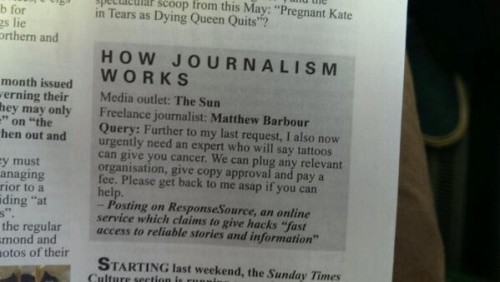Oh, my. What a lovely example of a not-pology. I think it’s a common refusal to acknowledge error in full blossom!
We deeply regret that we were not able to communicate our decision to Dr. Lee before removing the post on a late Friday afternoon before a long weekend. We recognize that it would have been better to fully explain our position before its removal, but the circumstances were such that we could not make that happen in a timely way.
They did nothing wrong, they would have removed the post no matter what, her only sin was having a dying cell phone so she wasn’t able to bossplain to DNLee why she needed to roll over and accept this entirely reasonable executive decision. Oh, and Scientific American must protect their interests by making sure that all the facts presented by their bloggers are entirely accurate and confirmed.
Wow. So they go through every blog post over there with that degree of thoroughness? I’m impressed. I’m not so impressed with their respect for their bloggers, though.
She might be interested in looking at Popehat’s interpretation of events.
Perhaps “Ofek” is some kind of scientist. If he is, and his identity is revealed, he is likely to experience significant social consequences — that is, he is likely to be treated as someone who calls women “whore” when they decline to provide him with free content. But Ofek is currently in the business of spamming bloggers to ask them to contribute free content to a sordid little advertising-heavy aggregator site in order to increase traffic and thereby increase advertising revenue to Ofek and Ofek’s team. In other words, Ofek has ceased to be a scientist and begun a career as a marketeer.
And marketeers are entitled douchebags. Within the context of online marketing, Ofek’s behavior is perfectly typical. Ofek’s belief — that he is entitled to profit off of Ms. Lee’s work, and that she’s worthy of abuse if she objects — is the apotheosis of marketeer culture.
I see that not-pology as an admission that Scientific American is an enthusiastic collaborator in marketeer culture.



